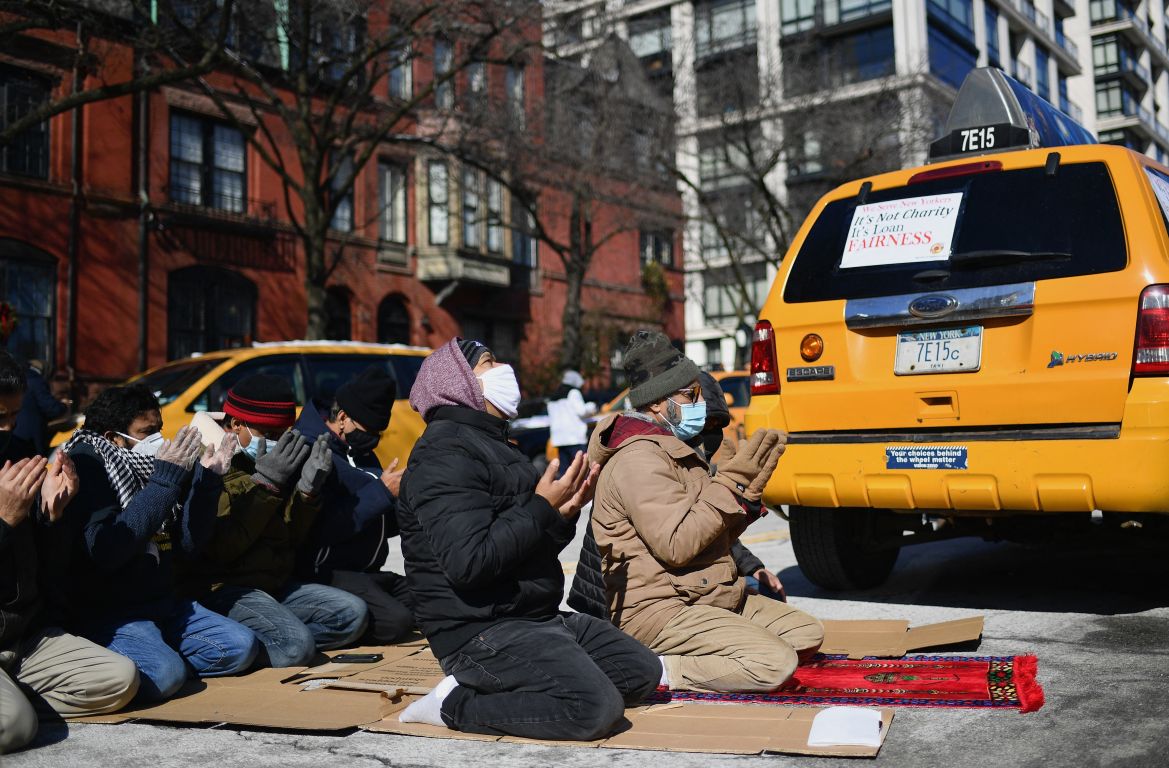In Pictures
In Pictures: Pandemic threatens New York’s iconic yellow taxis
Out of some 13,000 licenses, only about 5,000 taxis are running regularly at the moment, according to the union.

They were omnipresent on the streets of New York, day and night, as emblematic of the Big Apple as the Empire State Building or Yankees caps. But the pandemic has made yellow taxis scarce and facing an uncertain future.
On a February morning in a parking lot near La Guardia Airport, a few dozen yellow cabs patiently queue in the freezing cold to catch a fare from one of the terminals.
“This lot used to be full with hundreds of cabs and even a line outside,” says 65-year-old Joey Olivo, recalling the days before coronavirus.
“Now there is only about 50 and you wait two hours, when before you’d wait 20 minutes,” adds Olivo, who has been a taxi driver for three decades.
Widespread working from home, school closures and no tourists means rides have plummeted for Olivo, as they have for all of New York’s cabbies.
“It’s been pretty bad. My earnings dropped 80 percent. I went from making maybe $1,000 a week to making $200 or $300 a week,” he told AFP.
Olivo, who lives in Brooklyn, is trying to put a brave face on his situation, joking that he is lucky his wife “makes good money” as a nurse, otherwise, “I would have had a rope around my neck.”
New York taxi drivers, most of whom are first-generation immigrants, were once able to make $7,000 a month or more if they worked long hours seven days a week.
Competition from Uber, Lyft and other ride-hailing firms had already drastically dented their income but with the pandemic, it is in “free fall”, says Richard Chow, a 62-year-old taxi driver originally from Myanmar.








